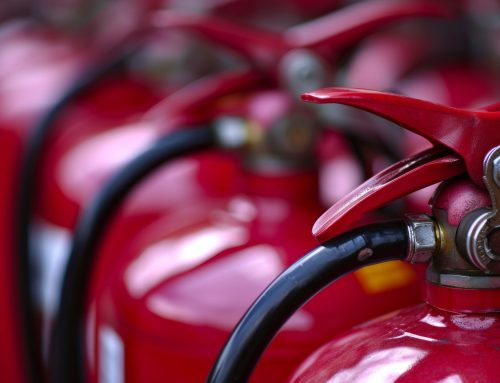FM-200 (HFC-227ea) has been a widely used clean agent fire suppression system for years, offering fast and effective protection for critical facilities. However, regulatory changes are driving its phase-out, which means that businesses relying on FM-200 should start preparing for the transition to alternative fire suppression agents.
Learn more about why FM-200 is being phased out, the available alternatives, and what you need to do if your system discharges.
Why Is FM-200 Being Phased Out?
The phase-out of FM-200 is part of a global effort by to reduce greenhouse gas emissions, specifically hydrofluorocarbons (HFCs). FM-200 has a high global warming potential (GWP) of 3,220, meaning it contributes significantly to climate change compared to other substances. As a result, regulatory bodies, including the Environmental Protection Agency (EPA), are enforcing measures to reduce the production and use of HFC-based fire suppression agents.
In the U.S., the American Innovation and Manufacturing (AIM) Act mandates an aggressive reduction in HFC availability, which directly affects FM-200. This reduction means that refilling FM-200 systems after a discharge may become increasingly difficult or impossible as supplies dwindle.
What Are the Alternatives?
Several alternative clean agents are emerging to replace FM-200, each with distinct benefits and compliance with environmental regulations:
- 3M™ Novec™ 1230 (FK-5-1-12)
- Lower GWP: 1 (significantly lower than FM-200)
- Fast-acting and residue-free
- Safe for occupied spaces
- Long-term sustainability
Novec 1230 is one of the most popular FM-200 replacements due to its environmental benefits and similar system performance. However, switching to Novec 1230 often requires a system redesign due to differences in storage and flow characteristics.
- ECARO-25 (HFC-125)
- Lower GWP than FM-200 but still an HFC
- Requires less agent by weight compared to FM-200
- Good option for facilities that need to retrofit existing systems with minimal changes
While ECARO-25 is a viable alternative, its long-term sustainability is uncertain due to its classification as an HFC, meaning future phasedowns may affect its availability.
- Inert Gas Systems (IG-55, IG-541, IG-100, etc.)
- Environmentally friendly (zero GWP and no ozone depletion)
- Use natural gases such as nitrogen and argon
- Require larger storage space compared to FM-200
Inert gas systems provide an effective and sustainable alternative to FM-200 but typically require more storage cylinders and larger piping infrastructure, making retrofits more complex.
What Happens If Your FM-200 System Discharges?
If your FM-200 system discharges, refilling it may not be a simple process. Due to the ongoing phase-down, FM-200 availability is declining, and even if a refill is possible, costs may be significantly higher. In some cases, obtaining FM-200 may no longer be an option, requiring a complete system redesign.
Steps to Take Now:
- Assess your current system: If your facility still relies on FM-200, now is the time to evaluate alternative agents and determine if a retrofit or full system replacement is necessary.
- Plan for the transition: Work with a fire protection specialist to design a replacement system that meets current regulations and your specific protection needs.
- Budget for the upgrade: As FM-200 supplies diminish, the cost of switching will only increase. Planning ahead will help you avoid emergency expenses.
- Stay compliant: Ensure that any new system aligns with local and international fire suppression standards and regulations.
Contact Fire Systems, Inc.
The phase-out of FM-200 is already in motion, and businesses must start planning for alternative solutions before a discharge leaves them unprotected. Whether transitioning to Novec 1230, ECARO-25, or inert gas systems, working proactively will help ensure continued fire protection while maintaining regulatory compliance. If you have an FM-200 system, now is the time to evaluate your options and prepare for the future.
Contact Atlanta-based fire protection company, Fire Systems, Inc. today for assistance in assessing your current system and planning for the transition, contact us today at 770-333-7979 or visit our website for more information. We look forward to working with you.







